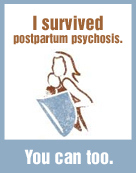
J’ai une révélation à vous faire.
Une forme d’aveu que je ne peux taire.
Quand mon fils n’avait que quelques mois
et que je le serrais tout contre moi,
je ne ressentais pas un grand attachement envers lui.
Je n’appréciais pas vraiment le temps passé en sa compagnie.
Quand je me réveillais le matin pour l’allaiter,
j’attendais impatiemment qu’il finisse de téter
afin de le confier à mon mari
et retourner dans mon lit…
jusqu’au prochain pleur de faim
qui ne réclamait que moi pour y mettre fin.
J’étais mieux dans mes draps
qu’avec lui dans mes bras.
Une fois levée, j’étais encore fatiguée et pas motivée
à passer mon temps à l’occuper.
Je n’avais pas le goût des « ga-ga », des « coucou »
ni des bisous.
Je le faisais par principe
et non remplie d’amour dans mes tripes.
C’était presqu’une corvée
plutôt qu’un plaisir partagé.
Bien lové contre mon sein, ses sourires et ses babillages de contentement
n’avaient pas sur moi d’effet attendrissant.
Je préférais ne pas me retrouver seule avec lui
recherchant le plus souvent la présence d’autrui.
J’étais très anxieuse.
Je ne savais pas pourquoi je n’étais pas heureuse.
Mon rôle de mère m’apparaissait comme un fardeau.
Une charge de trop…
Je me disais que je n’étais pas à la hauteur
et en public, je refoulais mes pleurs.
Derrière mon sourire de nouvelle maman
se cachait mon véritable tourment.
Et c’est ainsi que la dépression
s’était installée sans invitation
dans ma nouvelle vie de mère
en y imprégnant son goût amer.
**************************************************
Savez-vous que 15 à 20 pour cent des mamans souffrent de dépression post-partum? C’est un grand pourcentage! Pourquoi en parle-t-on si peu? Pourquoi encore tant de tabous l’entourant? Pour que les femmes qui en souffrent cessent de se cacher et de subir leur douleur en silence, il faut s’informer, en parler et cesser de juger. La dépression post-partum, ça se soigne et il n’y a pas de honte à devoir prendre des médicaments pour la vaincre. J’ai reçu des soins appropriés et j’ai retrouvé mon plaisir de vivre et d’être mère. (Dans mon cas, je vivais un début de dépression reliée à mon trouble bipolaire du post-partum, les symptômes étant toutefois les mêmes qu’une dépression post-partum). La maternité n’a pas à être vécue dans la peine et le tourment. Chaque maman mérite de connaître toutes les joies et les bénédictions que son bébé peut lui procurer.
Si vous souffrez d’une dépression post-partum, vous pouvez manifester les symptômes suivants ou certains d’entre eux :
Symptômes de dépression post-partum :
- Tristesse et/ou irritabilité extrême
- Ne peut penser clairement ou prendre de décisions
- Manque d’intérêt ou de plaisir dans les activités
- Sentiments de culpabilité, particulièrement au sujet du bébé
- Appétit accru ou diminué
- Se sent inadéquate, particulièrement en tant que mère
- Besoin de sommeil accru ou diminué
- Pensées de suicide ou d’acte autodestructeur
- Fatigue extrême
Source : Société canadienne de psychologie
Note importante : Ces informations sont données à titre de renseignement. Elles ne remplacent en aucun cas un avis médical. Si vous pensez avoir des symptômes de dépression post-partum, n’hésitez pas à consulter votre professionnel de la santé qui pourra alors poser un diagnostic adéquat. Vous n’êtes pas seule. Il y a de l’espoir.









Recent Comments